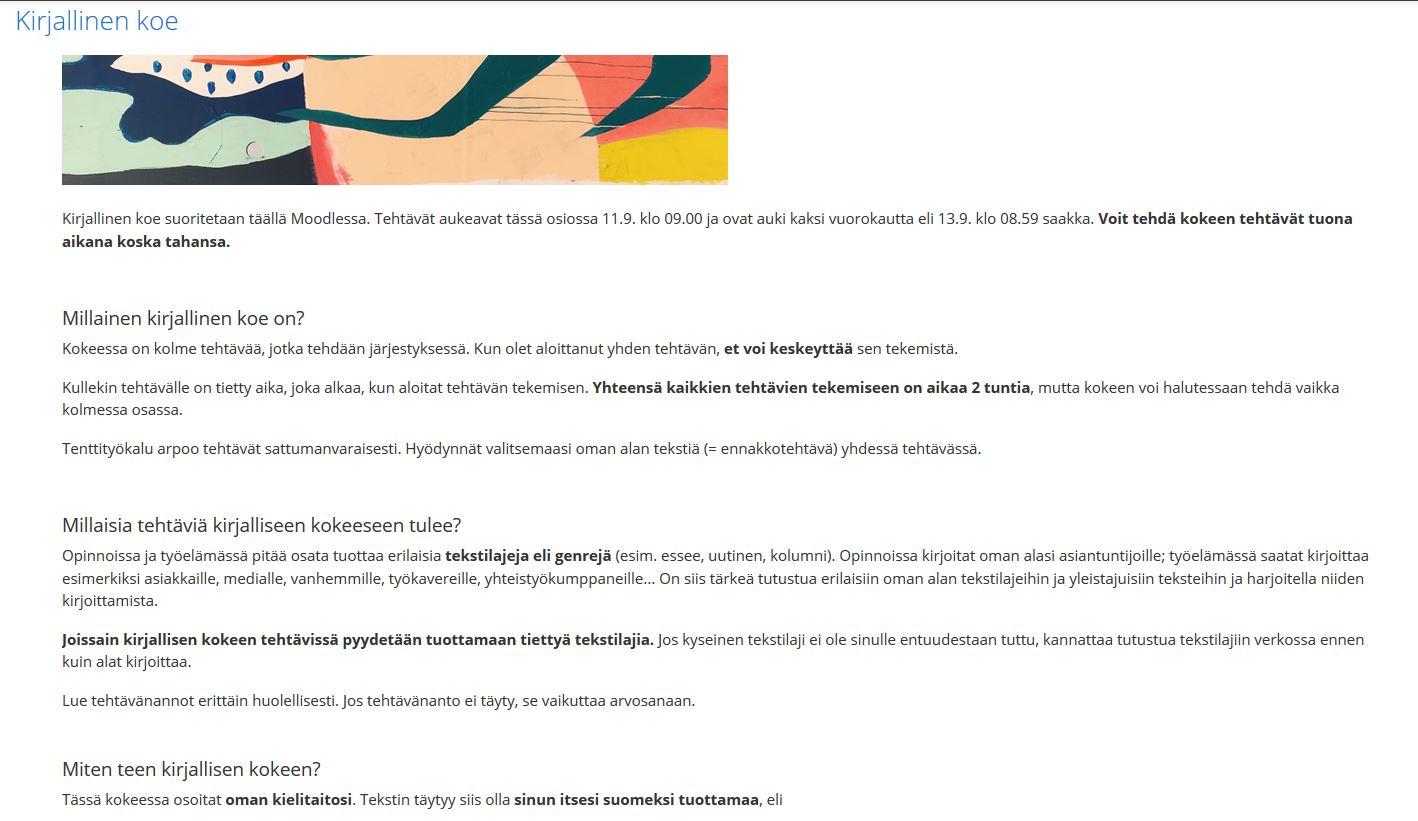Finnish bachelor’s degrees include required studies in the second national language (Finnish or Swedish, level B of the CEFR) that can be completed at the University of Helsinki Language Centre by taking a course or an examination. The majority of students who received their secondary education in Finnish complete the compulsory Swedish studies by taking a course in Swedish, but the situation of Swedish-speaking students is markedly different: each year, approximately 80% of them complete the compulsory studies in Finnish as a second language by taking an examination substituting for the course. In this examination, administered four times a year, the students must demonstrate their oral and written language skills.
The written section of the examination used to be completed at a traditional invigilated session with no access to aids, but it was transferred onto the Moodle platform in autumn 2019. This was done for several reasons. First, the aim was that the examination assess students’ language skills in relevant real-life situations. Second, the purpose was to create a learning situation in which students demonstrate their language skills while having access to various aids and learning how to produce texts. A third objective was to increase authenticity and assignments involving language use that simulate real-world situations.
The new written examination had been piloted in the 2018–2019 academic year at the Faculty of Medicine, and both the Finnish teachers and the students who had taken the examination had been convinced by the benefits of the reform. After the successful pilot project, the new written examination was introduced in autumn 2019 at all faculties for the purpose of testing the Finnish skills of students who had received their secondary education in Swedish. The assignments, technical solutions and instructions were adapted, fine-tuned and reviewed before each examination.

The new examination consists of a preliminary assignment to be submitted on Moodle, three texts to be written on Moodle and a subsequent face-to-face oral examination. Students have about one week to complete the preliminary assignment: they must find a suitable article of interest to them and relevance to their field of study, for example, from among the sources provided by the examiner. In addition, they must complete assignments that are based on the article, clarify its content and make it easier to discuss. After these assignments have been submitted on Moodle, the actual written examination will be available for two days, during which students can complete it whenever it is convenient. The examination requires students to write three short texts related to their discipline and submit them on Moodle. One of the texts must be based on the text selected for the preliminary assignment. No separate grammar test is administered. Each assignment has been separately scheduled using the Moodle examination tool, and the time allotted will begin to run from when the student starts the assignment. After completing the written examination, the student takes the oral examination face-to-face with the teacher, as before, but with no other students present. The student and teacher discuss matters based on the text selected for the preliminary assignment and the assignments included in the written examination and the student receives feedback.
Although the pilot project demonstrated that the new method can be used reliably and in a pedagogically sensible way to assess language skills at this level, the new examination also requires special arrangements to prevent the use of wrong kinds of assistance and direct plagiarism. Because the new examination includes several assignments, and only one student can take the oral examination at a time, it also requires more time from the teacher. In other words, some small-scale reorganisation of teaching resources and courses has been required.
The new substitute examination has already achieved the desired results: it has provided the teachers assessing Swedish-speaking students’ Finnish skills with a more comprehensive overview of these skills. For the students, the examination is a flexible and pleasant experience although the time limits cause some stress. The new examination is also more motivating for students, makes them more conscious of their language skills, helps them develop their generic skills and encourages them to use Finnish in various realistic situations:
“I learned that I can write and speak Finnish well even though I don’t always believe it myself.”
Text: Hanna Vänskä

